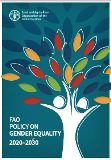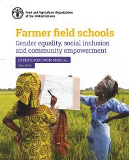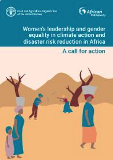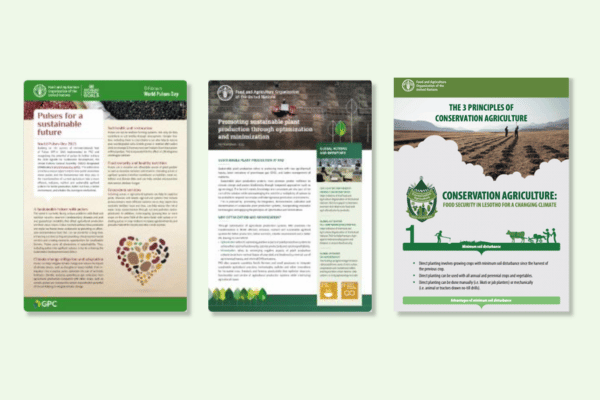Publications
Thematic highlights
All publications

FAO Policy on Gender Equality 2020 - 2030
01/2020
Gender equality is essential to achieve FAO’s mandate of a world free from hunger, malnutrition and poverty. The Organization recognizes that persisting inequalities between women and men are a major obstacle to agriculture and rural development

Women farmers’ access to sustainable agricultural mechanization
01/2022
With the massive out-migration of men from the villages, women’s work has increased at both household and farm levels. Women thus face additional work burdens and challenges in securing their households’ food security and livelihoods.

Indigenous women, daughters of Mother Earth
01/2020
There are 476 million indigenous peoples around the world, constituting 6.2 percent of the global population and, according to different sources, representing more than 19% of the extreme poor (ILO, 2019) of the world. Half of this population are women (approximately 240 million).

Farmer field schools, gender equality, social inclusion and community empowerment
01/2023
Senegal has had extensive experience with the development and implementation of the farmer field school (FFS) approach across almost two decades.

Women's leadership and gender equality in climate action and disaster risk reduction in Africa
01/2021
Despite the key roles that rural women play in food systems, in agrobiodiversity conservation, natural resource management, food production, preparation and marketing, rural women are particularly affected by the impacts of climate change due to limited access and control over resources fundamental to adaptation and limited participation in decision-making processes.






